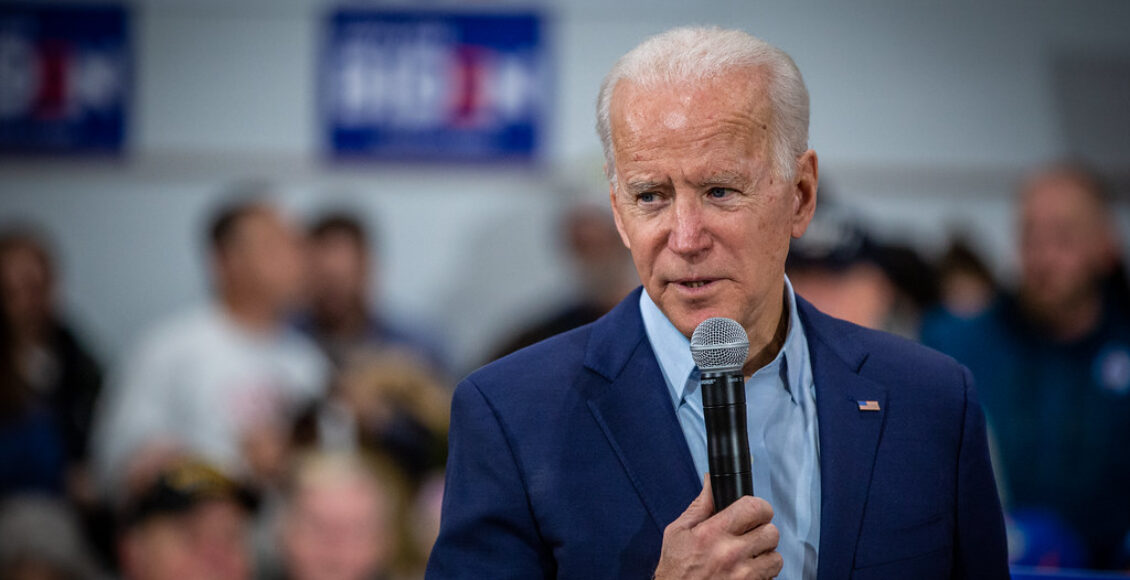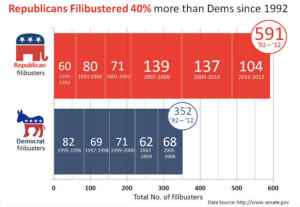Biden and Bipartisanship: Is Political Compromise a Possibility?
 President Biden ran his campaign on unity and bipartisanship. But will he be able to follow through with these promises during his term?
President Biden ran his campaign on unity and bipartisanship. But will he be able to follow through with these promises during his term?
Throughout his election campaign, President Joe Biden ran on a platform of national unity. This idea is certainly not misguided; the United States has been a deeply divided country for some time now. Given the exacerbation of these divisions by former president Donald Trump, Biden’s goal of increasing bipartisanship within the country’s politics would be a welcome change for many Americans. Throughout his tenure, Trump accentuated divisions in the United States through polarizing policies, such as his travel ban targeting Muslim individuals and his vehement opposition to the Black Lives Matter protests. The former president’s economic policy was no less divisive. Although surely needed given Trump’s time in office, Biden’s goal of unity still begs some serious questions regarding its feasibility.
Since 1994, ideological overlap between the Republican and Democratic parties has diminished: over 90 per cent of each party stands in unwavering opposition to the other. This recent polarization is largely due to political party preferences becoming tied to personal identity. As such, the idea of reaching across the aisle has almost come to represent forfeiting one’s sense of self. Ideally, a diversity of individuals and policy preferences within a political party should challenge the party to expand its policy ideas. Instead, we see that a political identity comes with the expectation of extreme loyalty for an individual’s party of choice. This phenomenon is explained as “democratic inversion“ by Professor Howard Lavine of the University of Minnesota. It occurs when individuals adjust their policy preferences according to their party of choice rather than choosing their party according to their policy preferences. The relationship between identity and party flips as a diversity of opinions within a party no longer pushes the party’s boundaries, and individuals at odds with their party’s policies are accused of disloyalty.

Going beyond this phenomenon, studies show that few Americans are willing to give up the party and policies they favour in order to defend democratic principles. Just recently, Republican Representative Liz Cheney, along with other House Republicans in their respective states, was censured by Wyoming state Republicans for voting to impeach Trump. Due to the separation of powers within the US government, Cheney understood her vote regarding impeachment as a necessary non-partisan check on the executive branch of government, with the objectivity of the process serving to stabilize the entire US political system. However, the Wyoming GOP’s decision is clearly one tied to partisan values, showing the consequences of breaking from your party on matters of moral and objective integrity. It is no wonder that the US remains so polarized; if a politician cannot make an objective decision on a non-partisan issue, how can we ever hope for bipartisanship when tackling actual partisan matters?
President Biden’s current goal is to overcome partisan divides in politics, a noble and yet extremely delicate ambition. His election platform rested entirely on his promise of unity, specifically focused on reaching across the political aisle to pass bipartisan legislation. Since the start of his presidency, Biden has rushed to sign an unprecedented 30 executive orders in an effort to re-adjust the direction of the US in the wake of the Trump presidency. Considering his promise for unity, it seems ironic that Biden would pass so many executive orders without attempting to seek Republican input. However, he faces the unique challenge of needing to balance acting quickly and going through the long process of getting bipartisan support — two seemingly incompatible goals. Biden certainly hopes to overcome the tension between these challenges, but his policy goals force us to question whether or not this is feasible.
One of the most important pieces of legislation currently in Congress is Biden’s proposed COVID-19 bill. Biden has stated time and again his hopes for this bill to pass with bipartisan support; however, once a bill is introduced to Congress, it becomes the duty of the legislative branch to amend and pass the bill into law. In this case, upon its arrival in Congress, the COVID-19 relief bill was immediately championed by Democrats, while Republican support seemed lacking. Although the House successfully passed the bill entirely without Republican support, this may prove tricky in the Senate due to the threat posed by a Republican filibuster. Instead, Senate Democrats are looking towards budget reconciliation, a process that would allow the bill to pass without Republican support. Despite advocating for bipartisanship, Biden and Congressional Democrats evidently still favour fast relief.

While President Biden is no stranger to the problems linked to bipartisanship, he has not yet given up hope on his platform of unity. Instead, he appears to have simply changed tactics. The present extent of his commitment to bipartisanship is threefold: Republicans are able to vote according to their voiced opinions, the bill enjoys overwhelming support from the American public — Republicans and Democrats alike — and many local and state-level GOP lawmakers see value in Biden’s plan. Biden’s administration has seemingly re-imagined what it means to be bipartisan, pivoting from the goal of reaching across the aisle in Congress to simply seeking any support from Republican constituents and state legislators. But is this redefinition here to stay, or will the lack of congressional Republican support for this bill and many others down the line force Biden to back down from his promise of bipartisanship altogether?
One aspect of this conversation that cannot be overlooked is the precedent set by this lack of bipartisan support in Congress. The Democrats currently control both chambers in Congress and run the executive branch, meaning that passing legislation without the support of Republicans is doable considering the possibility of budget reconciliation in the Senate. Many argue that Biden’s bipartisan efforts should be abandoned altogether, given the feeble efforts from few Republicans to cooperate with the President. And yet, the Senate is currently paralyzed by the filibuster, making the complete abandonment of bipartisanship impossible. While budget reconciliation might work for the COVID-19 bill, the administration is working on numerous bills that will need bipartisan support to pass. Perhaps, rather than searching for wide-reaching bipartisanship, Biden should focus on the few moderate Republican Senators who can make up for the Democrat’s narrow majority and help them overcome the future threat of a filibuster.
However, this still leaves the question of what a distinct lack of Republican support for the COVID-19 bill will mean for future efforts at bipartisanship. Although Biden ran on this promise, he has appeared to back-pedal on it within his first month in office. Biden himself has certainly shown a willingness to compromise with Congressional Republicans, but both his chief of staff and personal aides are far more hesitant, mirroring the hard stance of many other Democrats who are unwilling to consider any sort of compromise. With such firm opposition to bipartisanship, it remains to be seen whether any Congressional efforts towards this goal will be made moving forward. The reality is that Biden cannot achieve bipartisanship on his own. For him to stay true to his promise, he will also need mutual negotiation between Democrats and Republicans on the Hill.
Featured Image: “Joe Biden at McKinley Elementary School” by Phil Roeder is licensed under CC BY 2.0
Edited by Jacob Lokash
